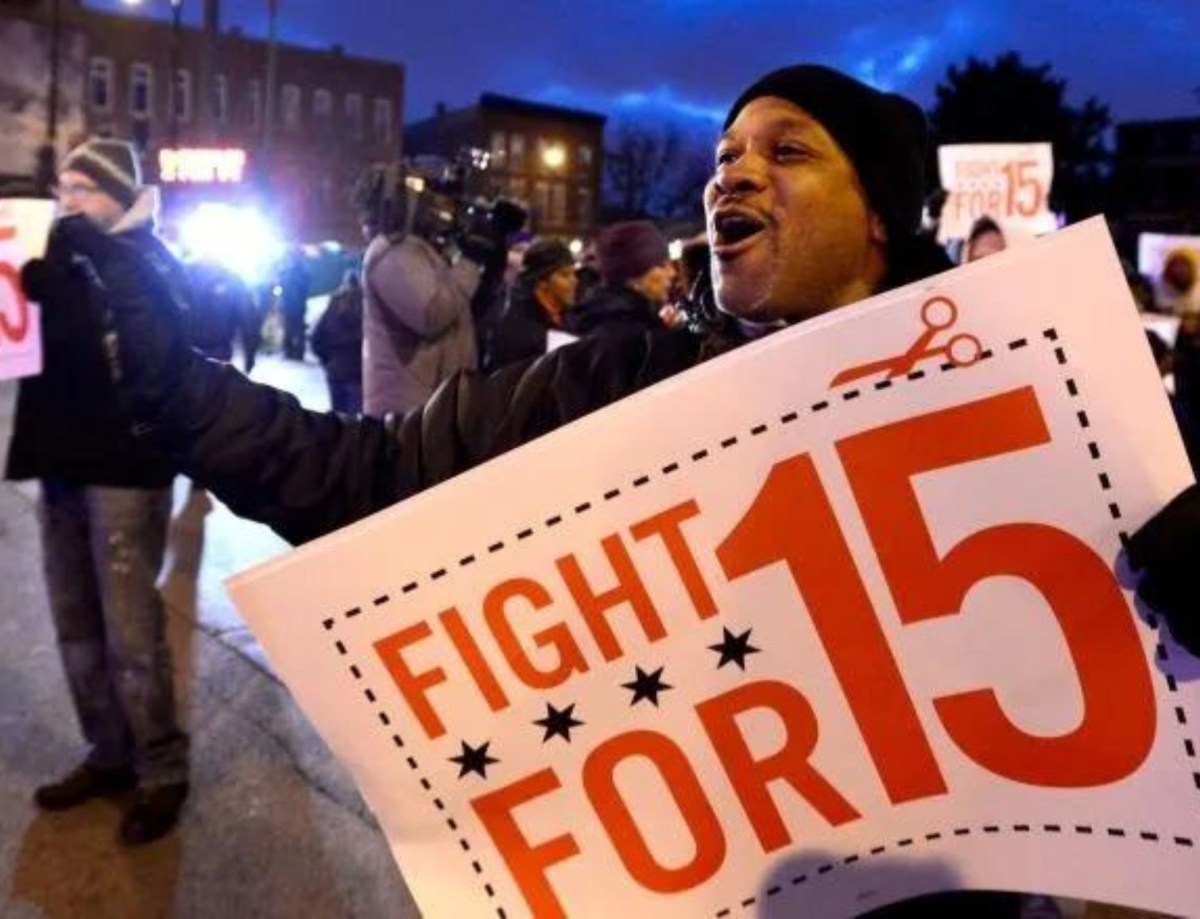|
Listen to this article here
Getting your Trinity Audio player ready...
|
One of the most conservative states in the U.S. moves closer to a possible minimum wage hike after the Oklahoma Supreme Court allowed a petition to move forward Monday.
The state’s high court rejected a challenge from the Oklahoma State Chamber of Commerce and the Farm Bureau Legal Foundation, according to the Oklahoma Voice.
State Question 832 is an initiative petition that would raise the minimum wage periodically to $15 by 2029 and then set further increases to the Consumer Price Index. Monday’s ruling means petitioners will have less than 90 days to gather 92,262 signatures to place the measure on the ballot in November.
“It’s time to let the people decide.” state Amber England, Raise the Wage Oklahoma campaign spokesperson.
Supporters of Oklahoma’s minimum wage petition point to the 15-year time span between the last minimum wage hike, arguing an increase would address poverty and boost employment. Meanwhile, the State Chamber and the Farm Bureau sued, arguing state law prevents the Oklahoma Legislature from delegating its duty to the federal government via the CPI.
Oklahoma Attorney General Gentner Drummond sided with the challengers. Nevertheless, the state Supreme Court disagreed.
“Initiative petition 446 does not clearly or manifestly violate either the Oklahoma or United States Constitution,” the court ruled in a 7-2 decision.
Oklahoma Policy Institute stressed the impact the minimum wage has on families, noting more than half of all Americans (55.7%) who work at or below the minimum wage are over the age of 25.
“Wages for everyday Oklahomans are too low for many families to put a roof over their head or food on the table,” Oklahoma Policy Institute Executive Director Shiloh Kantz told the Black Wall Street Times Wednesday.
“Raising the minimum wage is one of the policy solutions that can help address the state’s low-wage issue, and we’re grateful that the courts are allowing the state question to move forward so Oklahoma voters can decide this issue,” she added.
Oklahoma’s Surprisingly Progressive Roots
In the modern era, Oklahoma remains a solidly conservative state. Its voters haven’t elected a Democratic president since Lyndon B. Johnson in 1964. The last Democratic governor was elected in 2006, and Republicans hold super-majority control over both the state House and Senate. It’s unclear whether Oklahoma voters will support a minimum wage increase even if the petition does gather enough signatures.
Yet, the state formed the most progressive constitution when it entered the Union in 1907. Oklahoma became a state in the middle of the Progressive Era (1897-19717), a national movement in which workers and farmers protested the excess control and power of big businesses.
Locally, the same coalitions formed and gained in strength and numbers, forcing politicians to craft a constitution that protected workers and regulated companies.
According to the Oklahoma Historical Society:
These provisions included the initiative and referendum, direct primary elections, the secret ballot, an eight-hour work day for laborers under state contracts, a strong corporation commission, an inspector of mines, restrictions of child labor, and liberal homestead exemptions.
Ultimately, the movement failed to sustain itself due to infighting, and a refusal to support equal rights for women and Black Oklahomans.
A chance to raise the wage in Oklahoma
Oklahoma’s minimum wage hasn’t budged since the federal minimum wage moved to 7.25 in 2009. Yet a dollar today can purchase less than three-fourths of what it could buy in 2009, according to the Bureau of Labor Statistics.
Nearly 1 in 6 Oklahomans remain in poverty, and low wages disproportionately hurt workers who identify as women and people of Color, who are more likely to work in low-wage jobs, according to the Economic Policy Institute.
Meanwhile, the Oklahoma initiative petition process remains one of the few ways to pass progressive laws. Criminal justice reform measures in 2016, medical cannabis in 2018 and medicaid expansion in 2020 were all passed through a vote of the people.
Monday’s Oklahoma Supreme Court ruling gives voters a chance to make another progressive move through an increase in the minimum wage.


